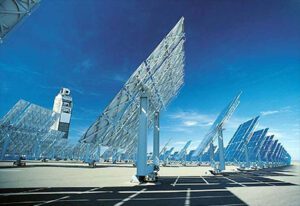Honda Debuts it's New Fuel Cell Vehicle in North America- But Is This Really the Future of Transportation?
January in North America can only mean one thing, a new season of auto shows. The American International Auto Show in Detroit begins the season in early January each year, and is considered the most important show on the continent. Therefore, it should come as no surprise that this year’s show saw the debut of Honda’s new Zero-Emissions Fuel Cell Vehicle (FCV) concept car.
Honda has been one of the leaders in fuel cell vehicle technology and has been offering, in southern California only that is, leases on FCVs in the U.S. since 2009. The Honda Clarity FCV was made available for lease in select markets around the world from 2008 to 2014. The new version of their fuel cell vehicle, making the current rounds at auto shows, will become available in the U.S. in 2016.
The question remains, however, as to whether or not fuel cell technology is the future of transportation, an important piece of a more diverse transportation future regarding fuel sources or a technology that will never live up to its hype that will drain R&D funds away from promising alternatives for some time to come?
Honda, along with their Japanese rivals Toyota and Nissan, have invested heavily in hydrogen fuel cell vehicle development. Robert Bienenfeld, assistant vice president of environment and energy strategy for American Honda Motor Co. confirmed his company’s commitment to the technology with this statement:
“Fuel-cell vehicles are a critical pillar for meeting our mid- to long-term carbon cutting goals. With renewed attention to the development and thoughtful rollout of a fueling infrastructure, it’s a very exciting time for both the technology and the promise it holds.”
The Japanese government has supported the development of hydrogen fueling infrastructure both monetarily with the direct infusion of government money, as well as with their recent relaxation of technical standards for compressed hydrogen filling stations, making it less onerous (less safe??) to develop the country’s infrastructure.
The U.S. government is also investing in hydrogen fuel cell technology infrastructure. The DOE is offering the H2 Refuel H-Prize challenging American innovators to develop systems that make it easy to fuel hydrogen powered vehicles, using energy sources delivered to most homes and businesses (electricity and natural gas); as well as funding fuel cell research through the DOE and the military.
Many engineers and economists continue believe that there are too many technological and economic issues involving the making and storing of hydrogen fuel to allow this technology to be viable on a large scale. Is the Japanese commitment to FCVs a result of their grasping for energy alternatives after the Fukushima nuclear disaster? Does the U.S. see hydrogen fuel cells as a part of the answer to energy security issues?
These questions remain to be answered, but if you would like to explore what Honda’s new vehicle has to offer, here are some of the highlights:
- Honda FCV Concept features a low and wide aerodynamic body with clean character lines
- new interior design taking advantage of new powertrain packaging efficiencies delivering even greater passenger space than the Honda FCX Clarity fuel-cell vehicle, including seating for up to five people.
- anticipated driving range of 300 miles.
- reduced cost in comparison to the FCX Clarity FCV.
If you missed the Detroit Auto Show, this new concept vehicle can be seen at the Washington Auto Show beginning tomorrow.
We will keep you updated on future opportunities to see “clean tech” cars in person!
 About Tracey Smith
About Tracey Smith
Tracey is an accountant and entrepreneur with a passion for nature. This passion is what spurred her interest in renewable energy, and the rest is history as they say. Tracey is a principal in Energy Think Group, the publisher of Solar Thermal Magazine and Tek-Think. She is also the principal at Women’s Financial Help Desk. She spends her free time in the outdoors with her horses and dogs. She loves to travel.
![]() Tags: DOE, fuel cell vehicle, honda, Japan, nissan, Toyota, US
Tags: DOE, fuel cell vehicle, honda, Japan, nissan, Toyota, US

